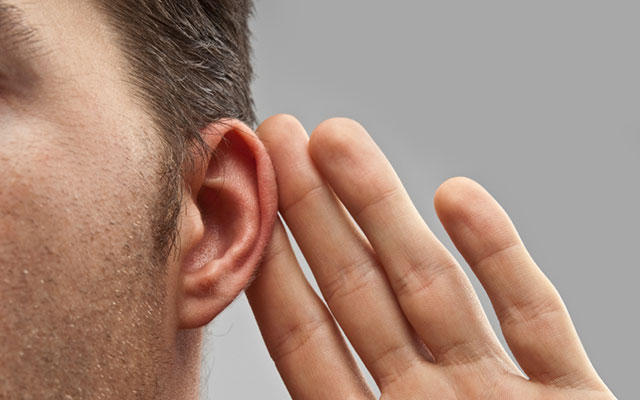I’ve recently been spending some quality time with various auditory specialists in an effort to upgrade my current pair of ears. Twice in the last few weeks, I’ve found myself sitting in a Cold War–era sound booth, first trying to discern what it was the voice on the other end of the wire stuck in my ear was trying to tell me; and, more recently, weighing the relative merits of various brands of hearing aids. The second incident, as you might suspect, was directly related to the results of the first.
It seems my ears have lost their ability to gather sounds in a way that allows my brain to translate them clearly into words. The verdict only validated evidence that has been mounting over the past few years — scenarios I’ve chronicled in these pages. So, I can’t say any of this has come as a surprise. What’s been most interesting about this particular journey is the fact that nobody seems to know why my ears have let me down.
All the auditory specialists want to point to a specific incident when things started to go south. They’re thinking of explosions, gunfire, and other traumatic earfuls of noise that have been known to blow out your eardrums, but I’ve not been able to satisfy them on that count. The best I can do is confess to spending too much time at First Avenue listening to (mostly) forgettable garage bands back in my 30s. (Although, that Fleshtones show in ’87 was almost worth a little deafness.)
There’s been some mention of a tumor somewhere in my cranium that might be crowding my auditory nerve, but the only way we’d know whether that’s the culprit is if I lay down inside an MRI machine for an hour, which really isn’t going to happen.
Anyway, nobody seems to be able to explain to me why this has happened, which on one level doesn’t really matter since there’s nothing I can do about it — except stuff some elegant piece of technology into my ears or crawl into an MRI machine. But on the other hand, I can’t help but be a little curious about the whole thing, which is why some new research from Case Western Reserve University caught my eye the other day.
According to Brian McDermott, PhD, an associate professor of otolaryngology-head and neck surgery and lead author of the study, it’s all about the hair. Or, more precisely, the hair in my inner ear and the proteins that travel through its cells. Or something like that.
I’ll let the Case Western folks give you the big picture.
“Hearing is made possible when hair bundles protruding from the tops of hair cells capture the energy of sound waves, converting them into electrical signals that stimulate the auditory nerve to the brain. These hair bundles are made up of individual hair-like projections, or stereocilia, which sway in unison with other stereocilia, and remain permanently with us throughout our lives. Extremely loud noise can force whipsaw motion of the stereocilia, causing them to be damaged and the resulting hearing loss to be permanent. The prevailing theory had been that these hair bundles were made up of cellular scaffolding proteins that do not change or circulate.”
The good news emerging from McDermott’s study is that protein movement within the hair bundles can have a salutary effect, actually repairing the hearing mechanism. “What was surprising in our research with zebrafish is that proteins move so rapidly, implying that protein movement may be required to maintain the integrity of hair bundles in the inner ear,” McDermott said.
So, maybe my problem is that, like my geezer legs, my geezer proteins just don’t have the get-up-and-go they need to fix the damage that occurred somewhere other than at that great Fleshtones show. Or maybe it’s just that tumor.

This Post Has 0 Comments